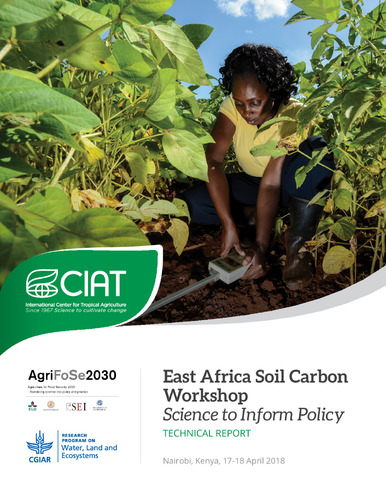East Africa Soil Carbon Workshop: Science to inform policy
Introduction and rationale:
Global soils contain about 2344 billion tons of organic carbon. This is the largest terrestrial pool of organic carbon. Small changes in soil organic carbon (SOC) stocks could result in significant impacts on the global carbon balance. Trapping carbon in the soil contributes to reducing greenhouse gas (GHG) emissions from agriculture. Managing our soils better can also help us to adapt to a changing climate by improving soil health, soil productivity (and crop yields) and agro-ecosystem resilience. However, not all soils are the same.
Geography, climate, and land use play a crucial role in how much carbon soils can potentially absorb, or how much they lose. While expectations are high – especially for degraded soils of sub-Saharan Africa – that soils can play crucial role in mitigating climate change, details on the where, how, and potential costs are missing.
The East Africa Soil Carbon Workshop – Science to Inform Policy brought together 28 participants from 11 countries: Ethiopia, Kenya, Uganda, Rwanda, Tanzania, South Africa, Madagascar, Germany, France, Netherlands, and Sweden (10 women and 18 men). Participants included decision makers, practitioners and implementers, and researchers in the fields of biophysical and social science. The aim was to exchange state-of-the art knowledge; review and discuss latest methods, metrics and tools for assessing SOC and mapping & monitoring SOC dynamic hotspots; and to discuss entry points for shaping gender-sensitive policies towards a green economy where carbon sequestration in soils is a recognized component. During group work sessions, the participants discussed and developed key messages that are relevant for policymaking on SOC sequestration in East Africa and beyond. This report summarizes contributions from participants, lessons learnt and action points.

